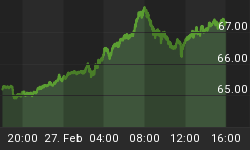China daily is reporting that China's exchange rate will fluctuate more widely in time, so authorities do not plan another one-off revaluation like the one carried out in July. Following are some of the highlights:
Speaking at the World Economic Forum in Beijing, Ma ruled out a repeat of the July 21 revaluation because the yuan was now managed with reference to a basket of currencies.
Assistant central bank governor Ma Delun offered these comments:
- "The Chinese Central Bank has no plans to revaluate the RMB at a higher rate"
- "In line with the change in control method, the range of the renminbi's exchange rate fluctuation should expand. So there is no need to rely on administrative adjustments"
- China had made no changes to the way it managed its foreign currency reserves since the revaluation, and the move had not prompted the country to sell U.S. Treasury bonds. Answering questions after his speech, he referred to worries that China would sell U.S. Treasury bonds, which have helped to finance the United States' current account deficit. "We will not do that" Ma said.
- The guiding principles of China's foreign exchange management remained unchanged. These were security first, liquidity second and the possibility of making money third.
Finance Minister Jin Renqing offered these comments:
- "A stable renminbi will be good for China's economy. It is also good for Asia's economy and for the world economy."
- "Our reform will be carried out in a gradual and controllable way".
Once again ideas about a huge crushing blow to the US$ coming from China massively selling US treasuries or China repegging the RMB much higher or even huge trading ranges for the RMB seem misplaced. China will slowly widen the trading bands over time and sudden windfalls seem quite unlikely. Since July's 2.1 percent revaluation set the exchange rate at 8.11 to the dollar, the yuan has strengthened to 8.097. Minute moves like these are simply not going to provide a huge source of profit or excitement for currency traders given that one year US treasuries are offering close to 4% yield.
With the US Congress now more focused on Katrina rather that textile imports or the RMB, timing of this news by China could hardly be better. It remains to be seen if this will force out some of that "hot money" sitting in China hoping for that windfall, or if this widening band finally puts an end to nonsense talk from the US Congress branding China a "currency manipulator".















